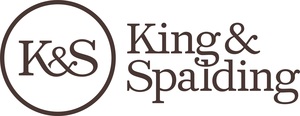U.S. Producers Of Plastic Grocery And Shopping Bags Applaud U.S. Customs' Finding Of Illegal Evasion Of Antidumping And Countervailing Duty Orders
WASHINGTON, Oct. 26, 2020 /PRNewswire/ -- This release is issued by King & Spalding:
U.S. Customs and Border Protection ("Customs") found last week that Mac Swed, Inc. ("Mac Swed"), an importer located in New York, evaded antidumping and countervailing duties on entries of polyethylene retail carrier bags ("PRCBs").
Entries of PRCBs originating from Vietnam are subject to combined antidumping and countervailing duties of up to 128.67 percent.
According to Customs, Mac Swed purchased PRCBs from VN K's International Polybags, JSC ("VN K's"), a Vietnamese producer, but misreported the merchandise as having been produced by K's Laos Trading Company ("K's Laos"), located in Laos. By reporting Laos (rather than Vietnam) as the country-of-origin, Mac Swed illegally avoided the payment of antidumping and countervailing duties.
In its final determination (see notice), Customs found that K's Laos had no manufacturing capabilities and that the bags actually originated from Vietnam. Customs will now proceed to collect applicable duties on Mac Swed's past entries and impose additional restrictions on future entries, in addition to possibly pursuing other civil and criminal penalties.
This investigation arose out of an allegation brought in October 2019 under the Enforce and Protect Act ("EAPA") by the Polyethylene Retail Carrier Committee, an ad hoc coalition of U.S. plastic bag manufacturers.
Michael Taylor, a partner at the law firm of King & Spalding and counsel to the Committee, applauded the government's enforcement efforts. "We sincerely appreciate the dedication and hard work of U.S. Customs in investigating the matter and reaching this determination, which demonstrates that illegal evasion of antidumping and countervailing duty orders on plastic bags will not be tolerated," said Mr. Taylor.
"On behalf of domestic producers and their employees, we intend to work with the industry to collect evidence of illegal evasion, notify Customs when such evidence is obtained, and assist Customs with its investigations and prosecutions of potential violations of law," Taylor added.
Currently, there are antidumping orders on plastic grocery and shopping bags from China, Indonesia, Malaysia, Taiwan, Thailand, and Vietnam. The purpose of the antidumping law is to offset the unfair competitive advantage that foreign exporters enjoy as a result of selling merchandise in the United States at less than fair value. There is also a countervailing duty order on such plastic bags from Vietnam, which offsets unfair government subsidies received by Vietnamese bag producers. The law is intended to provide relief to U.S. manufacturers and U.S. workers by requiring antidumping and countervailing duties to be collected on the unfairly traded imports. The failure by importers to declare entries as being subject to an antidumping or countervailing order undermines that relief and may result in severe civil or criminal penalties, including imprisonment.
For Further Information Contact: J. Michael Taylor, King & Spalding, (202) 626-2385, [email protected]
SOURCE K&S

Related Links
WANT YOUR COMPANY'S NEWS FEATURED ON PRNEWSWIRE.COM?
Newsrooms &
Influencers
Digital Media
Outlets
Journalists
Opted In



Share this article